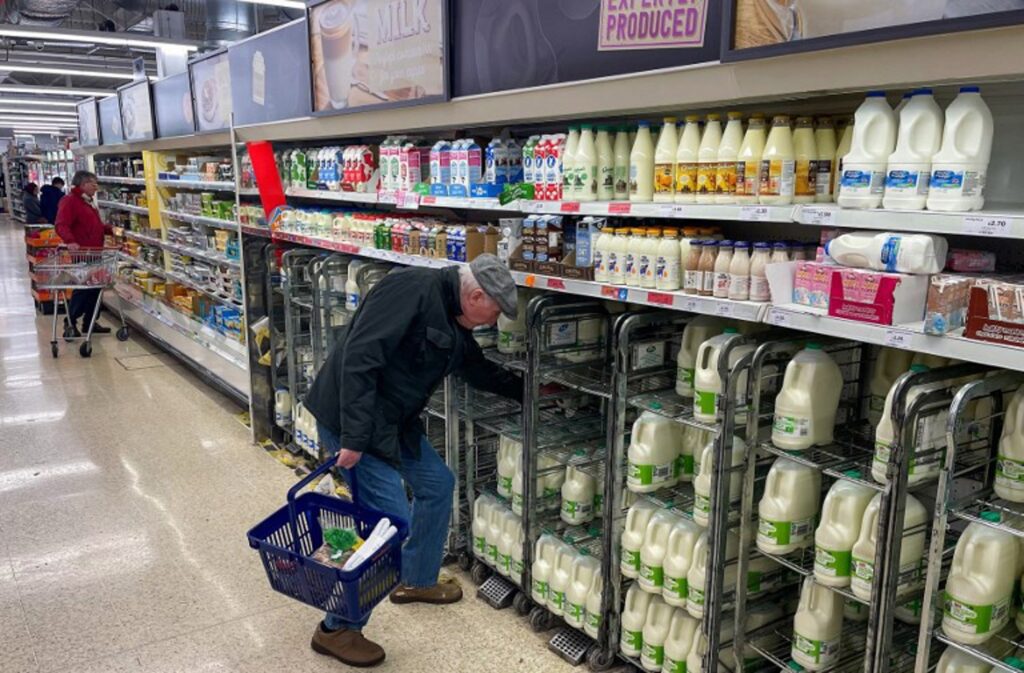British people pay more for their daily groceries – such as milk and baby food – than other residents of major European countries.
That is the conclusion of market research firm Circana in a study comparing supermarket sales figures in the UK, the Netherlands, Spain, France and Germany.
Prices of milk and cheese went up the most in the past year. But pet food, detergent, baby food and nappies also rose more sharply than in the other European countries surveyed.
British people face the sharpest price increases since 1977, with groceries having now replaced energy costs as the biggest driver of inflation.
British Prime Minister Rishi Sunak has launched a series of investigations to see if everything is fair in the food chains. UK competition authorities are also investigating the cost of groceries.
Brexit benefits?
So far, Brexit has not helped Britons. Since the beginning of 2020, when the country left the European Union, consumers there have had to pay at least €5 billion more for groceries, the London School of Economics calculated earlier. This is partly because Britain has to import a relatively large amount of groceries. And that has become more expensive as a result of leaving the EU.
Market experts say price differences in European countries could prompt policymakers to control further increases. This is already happening in France, where food producers recently agreed to reopen price negotiations with supermarkets to make life cheaper for the French. In doing so, they responded to government demands to ease inflationary pressures on consumers.
European supermarkets and suppliers have been at loggerheads over prices for months. Among other things, profit margins are being disputed, and are much smaller at supermarkets than at major food manufacturers such as Unilever.

